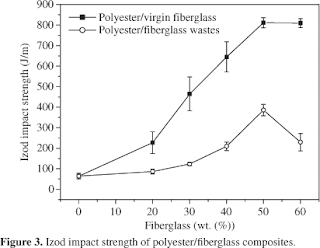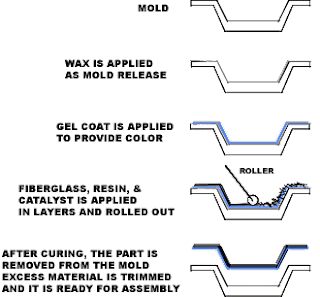



S-glass is a high-strength formulation for use when tensile strength is the most important property.
There are unique properties of Fiberglass, Composites, and Carbon Fiber that make them suitable and desirable for a wide range of product applications. These properties offer huge advantages over other types of construction materials. The advantages of Fiberglass, composites and Carbon Fiber can be generally summarized in the following categories:
- Versatility and Freedom Of Design
- Affordability and Cost Effectiveness
- Strength & Durability
- Appearance
- Special Physical Properties
Strength and Durability
Fiberglass is an attractive, lightweight, and durable material. Other composites such as carbon fiber can be even lighter and stronger. Fiberglass and composites have one of the highest strength to weight ratio available for component fabrication. Pound-for-pound, fiberglass is stronger than sheet metal or steel. Manufacturing parts from fiberglass builds strength directly into a finished product, much more so than using standard injection molded or non-reinforced plastics or materials.
Fiberglass is also highly resistant to environmental extremes. Fiberglass reinforced plastic (FRP) does not rust and is highly resistant to corrosion. In fact, the non-corrosive properties of fiberglass give it a much longer life expectancy than metal, wood, and non-reinforced plastics when used in highly corrosive application environments. When exposed to extreme temperatures, salty or humid air, sun (ultraviolet light), or acidic chemicals, fiberglass, composites, and carbon fiber will last longer and perform better than most available alternatives.Special Properties of Fiberglass
Fiberglass is dielectric. This means that it is non-conductive and RF transparent. This makes fiberglass ideal for applications where metal housings can affect electronic performance of a product or where electrically conductive metal housings can pose a safety hazard to employees or components.
Fiberglass is chemically inert. This means that it will not react chemically with other substances with which it may come into contact. This can prevent potentially hazardous and explosive situations that arise with other metallic or petroleum based materials.
Fiberglass also has superior and more desirable acoustic qualities than plastic or metal. Under similar conditions fiberglass and composites tend to vibrate less and remain quieter than sheet metals. This can reduce the overall operating volume of your machinery and even help you achieve acceptable or required sound levels for your equipment. For even more sound deadening capability, fiberglass and composites can layered with matte material in order to achieve the desired level of acoustic deadening.
Fiberglass and composites are structurally stable. Fiberglass and composites exhibit the least amount of expansion and contraction with heat and stress compared to plastic, metal, or wood. This means that your products will hold their shape better under severe mechanical and environmental stresses.
Fiber Glass is a good material to build my long board with because it is lite, strong under tensile and shear strength conditions and has good flex but will hold shape.

No comments:
Post a Comment